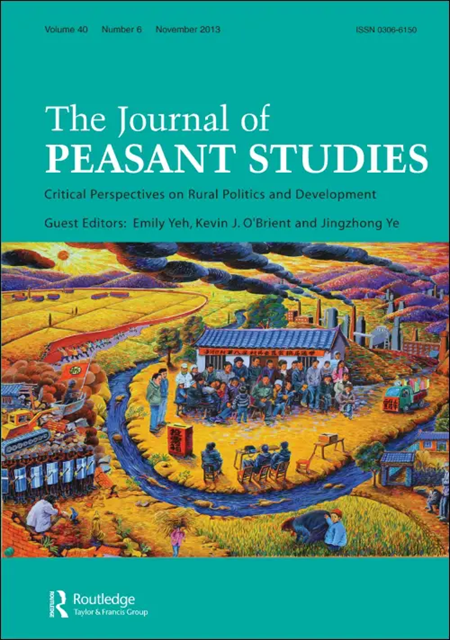游击队农业?国际自然保护联盟第二类保护区内非法种植的生物政治指南
IF 4.8
1区 社会学
Q1 ANTHROPOLOGY
引用次数: 79
摘要
保护区现在占地球陆地面积的近13%。至关重要的是,这种保护往往意味着排斥农民、牧民和森林居民。本文探讨了这些流离失所的生物政治含义,探讨了发展中国家出现的一种日益普遍的抵制保护的类型:游击农业,或在专门用于保护非人类生命的空间内非法种植食物。在此过程中,它对乌干达埃尔贡山的三组农民进行了比较分析,这三组农民支持通过各种非暴力、激进、话语和正式法律策略来控制非法种植的总体战略。我们远非全球经济和环境变化的被动受害者,我们展示了埃尔贡山农民的斗争如何经常有效地从环保主义者和乌干达国家机器中开辟出相对自治的空间。本文章由计算机程序翻译,如有差异,请以英文原文为准。
Guerrilla agriculture? A biopolitical guide to illicit cultivation within an IUCN Category II protected area
Protected areas now encompass nearly 13 percent of Earth's terrestrial surface. Crucially, such protection often denotes exclusion – of farmers, of pastoralists and of forest-dwelling people. Engaging with the biopolitical implications of these displacements, this paper explores the emergence of an increasingly widespread type of resistance to conservation in the developing world: guerrilla agriculture, or the illicit cultivation of food within spaces zoned exclusively for the preservation of nonhuman life. In doing so, it undertakes a comparative analysis of three groups of farmers at Mount Elgon, Uganda, which support an overarching strategy of illegal cultivation with a variety of nonviolent, militant, discursive and formal-legal tactics. Far from passive victims of global economic and environmental change, we demonstrate how the struggles of farmers at Mount Elgon are frequently effective at carving out spaces of relative autonomy from both conservationists and the Ugandan state apparatus.
求助全文
通过发布文献求助,成功后即可免费获取论文全文。
去求助
来源期刊

Journal of Peasant Studies
Multiple-
CiteScore
10.50
自引率
17.60%
发文量
99
期刊介绍:
A leading journal in the field of rural politics and development, The Journal of Peasant Studies (JPS) provokes and promotes critical thinking about social structures, institutions, actors and processes of change in and in relation to the rural world. It fosters inquiry into how agrarian power relations between classes and other social groups are created, understood, contested and transformed. JPS pays special attention to questions of ‘agency’ of marginalized groups in agrarian societies, particularly their autonomy and capacity to interpret – and change – their conditions.
 求助内容:
求助内容: 应助结果提醒方式:
应助结果提醒方式:


